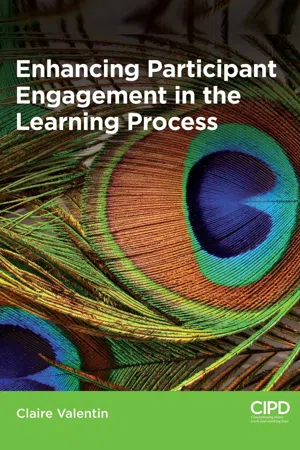![]()
01
Key Concepts in Engagement in Learning and Development
The need for complex knowledge and engagement in learning
The requirements of work are changing – in many occupations work is becoming more complex, driven by the impact of new technologies and ICT, and this brings a need for new types of learning and knowledge. For example, machine operators need to learn to interpret digital displays; nurses need to use new technologies for patient monitoring. Workers need to develop and maintain their capabilities to perform work tasks to required standards. They also need skills to work in intensive and busy work environments and this entails complex, higher order kinds of learning (Billett and Choy 2013).
We are moving from the information age to the conceptual age (McGurk and Sadler-Smith 2012, Sadler-Smith and McGurk 2014). Workers need to build on knowledge and experience, and, as well as technical capability, develop ‘self-awareness, an understanding how we impact others, of how we make decisions, how we influence and network and how we create and innovate’ (McGurk and Sadler-Smith 2012, p8).
Contemporary learning and development (L&D) is operating in what Loon (2014) notes is the VUCA environment – volatile, uncertain, complex, and ambiguous. Individuals need to develop complex knowledge and understandings in order to operate in these dynamic and unpredictable environments (Parker 2014). How organisations manage learning and knowledge has become a core competency. There is recognition that organisations can build competitive advantage through the continuing development of workforce knowledge and skills, the methods employed to support and accelerate learning. L&D in this context needs to be business savvy, strategically aligned and versatile.
From training to learning
L&D practice has moved away from a ‘training’ focus to a focus on learning. Training is not equivalent to ‘learning’; training may lead to the acquisition of information, and to changes in behaviour, but this is not a given. Learning requires active participation from the learner (Sterling and Boxall 2013, p228). This needs to be underpinned by an organisational culture that is supportive of learning and sharing knowledge. Developments in understanding of learning, for example in the field of neuroscience, are providing insights into newer approaches to helping people learn.
Haskell (2001) distinguishes between routine expertise and adaptive expertise. Routine expertise relies on a restricted knowledge base in a particular area. Adaptive expertise has a more extensive knowledge base, and can be applied to novel problems and situations. He uses an analogy: a routine expert could be a person who knows how to use a recipe effectively, whereas an adaptive expert could substitute ingredients or modify the recipe if required. Generally training leads to routine expertise, whereas deeper learning leads to adaptive expertise.
![]()
‘Part of this new focus is on who has responsibility for learning in an organisation. Is it L&D or is it the line managers? By embedding learning within an organisation and giving increased responsibility to line management, L&D can become more of an organisational competence, rather than a particular individual’s competence,’ said Rob Briner, Professor of Organisational Psychology at Birkbeck, University of London.
Adapted from Anna Scott, People Management 16 Sep 2010
Defining engagement in the learning process
Engagement in learning is concerned with involvement with activities likely to generate high-quality learning. It entails more than participation or involvement, although this is part of it. Trowler (2010) identifies three dimensions to engagement:
- Behavioural engagement – attendance and involvement, absence of negative behaviour.
- Emotional engagement – participants experience affective (emotional) reactions including interest, enjoyment, or a sense of belonging.
- Cognitive engagement – participants are invested in their learning.
Engagement encompasses the following aspects of the learning experience:
active and collaborative learning
participation in challenging learning activities
communication with learning facilitators
involvement in enriching learning experiences
feeling legitimated and supported by the organisation. (Coates 2007, p122)
The organisation plays an important part in enhancing learner engagement. The resources (time, effort, etc.) invested by both learners and the organisation need to aim to optimise the learner experience and the development of learners (Trowler 2010).
What do we mean by ‘learning’ in L&D?
The role of L&D is to support, facilitate and manage learning for groups or individuals, and an understanding of learning is therefore central. But we are so familiar with the term ‘learning’ that it is used without question, often underpinned by unproven assumptions and reflected in outdated models. There are many different, often overlapping, theories of learning, which draw on traditional understandings and new developments (Jarvis 2006). A good starting point is Illeris’s (2009, p30) definition of learning as ‘any process that in living organisms leads to a permanent capacity change and which is not solely due to biological maturation or ageing’.
In L&D we are obviously interested in human learning. Learning is enduring rather than fleeting, and the person has changed in capacity – they have knowledge that they did not have previously, have improved an existing skill, or developed a new one. And learning is distinguished from the typ...
